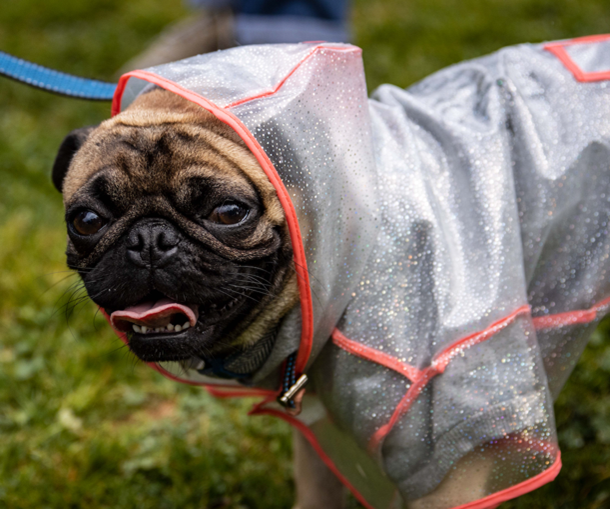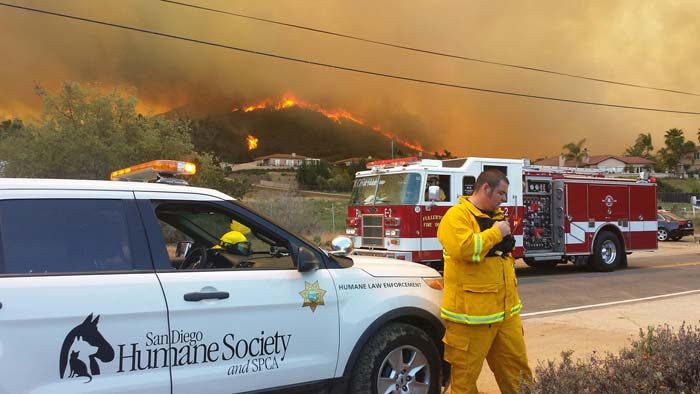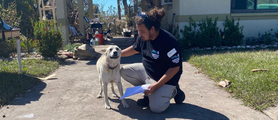Animal People:
Officer Beverly Fitzgerald
Humane Law Enforcement Officer
Since joining San Diego Humane Society's Humane Law Enforcement team in 2018, Officer Beverly Fitzgerald has made an incredible impact for countless animals and people through her compassionate work. Officer Fitzgerald has more than 27 years of experience in K9 search and rescue, forensic investigation and emergency medical response, and uses her expertise to rescue and find justice for those in need. In honor of National Prevention of Cruelty to Animals Month, Officer Fitzgerald tells us about her K9 companions and the most rewarding moments in her work.
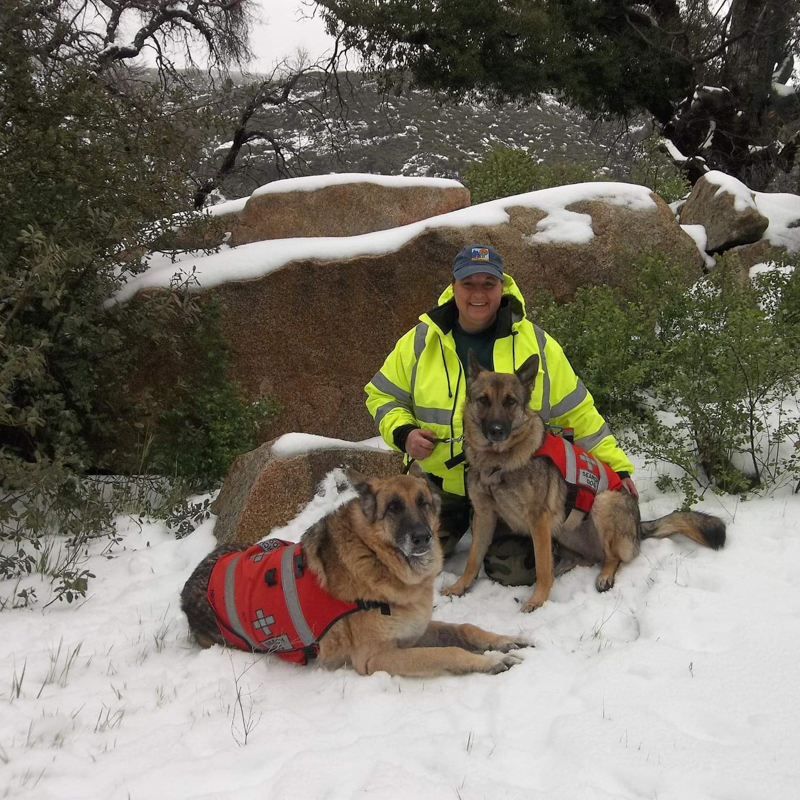
Did you always know you wanted to go into a career working with animals?
When I was a kid I had a Pomeranian puppy and a German shepherd, and I've had pets most of my life. I always found a way to have animals, and would pick up dogs I found on the street and bring them home. At one point, I wanted to become a veterinarian (as all kids do), and I volunteered in a veterinary clinic for about three years to get my volunteer hours for veterinary school. During that time, I ended up getting into a head-on collision and needed extensive physical therapy, which turned my interests toward human medicine.
After that adrenaline rush, I decided I wanted to work on an ambulance, so I left my idea of becoming a veterinarian and went into pre-hospital medicine to become an EMT. I soon joined a disaster medical assistance team and deployed to a hurricane, where I learned extensively about search dogs. I spoke a lot to the volunteers on the canine team, and decided this was something I wanted to do once I could dedicate my time and money to it, because it can be very time-consuming and expensive. Once my life settled down a little bit, I ended up getting a dog to start doing K9 Search and Rescue, and have been doing that since the beginning of 2001.
Who was your first K9 Search and Rescue dog?
My first search and rescue dog was Nikita, a German shepherd. She was injured at the breeder's shortly before I picked her up and she ultimately went blind in her left eye. I was worried she wouldn't be able to do search and rescue because of that injury, but the sergeant with the sheriff's department I worked for told me they only needed her nose to work. I trained her in trailing for search and rescue, and a couple other specialties. She was certified in basic disaster, cadaver search, firearms and evidence detection. She had quite the nose on her and she was very impressive. She was the first dog I worked with and I had a lot to learn with her.
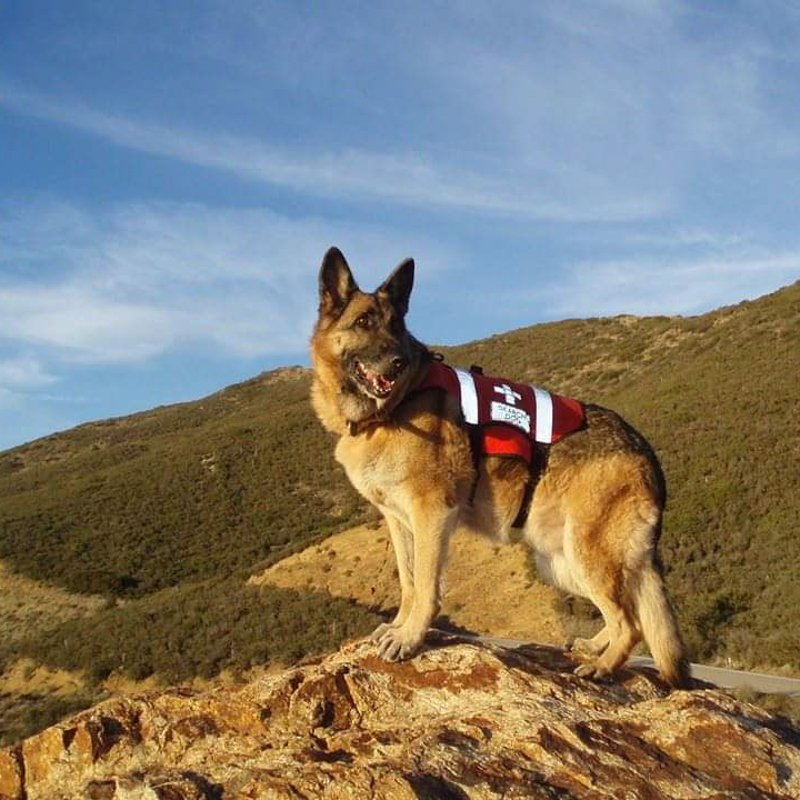
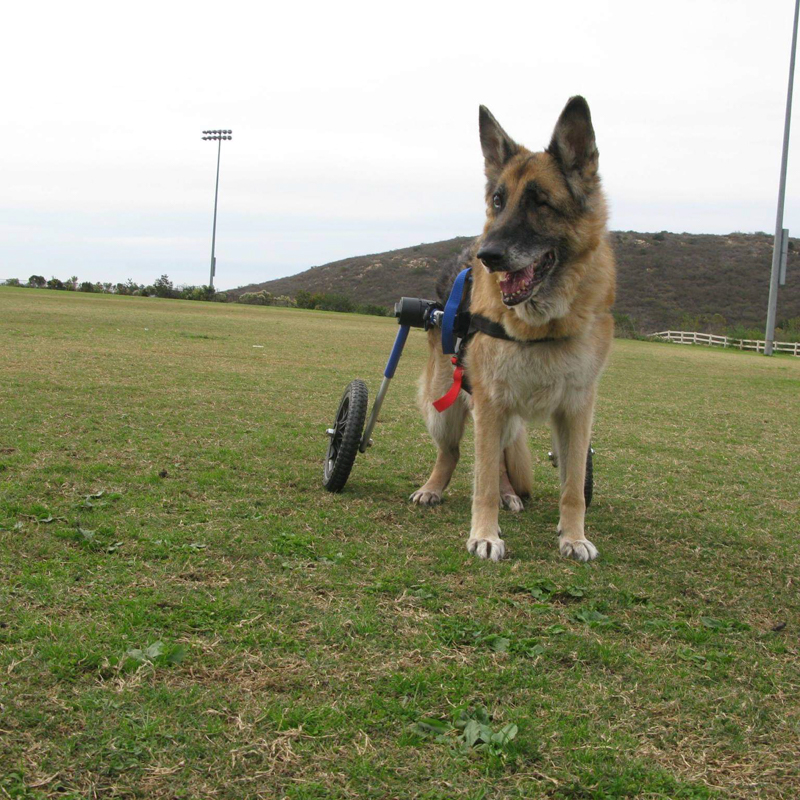
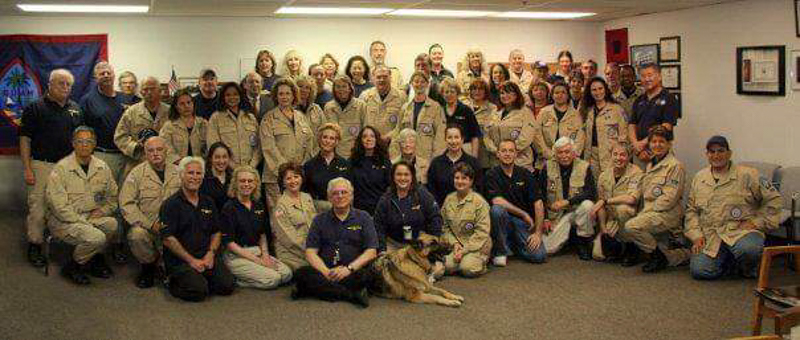
How did your life change once you started working on the Search and Rescue team?
At the time, I was working full time in an emergency room, which funded my volunteer work with search and rescue. My schedule was flexible, so I had time to train with my dogs and help on different searches. When September 11 happened, I deployed with my disaster medical assistance team for several weeks to the World Trade Center site to care for the front workers and firefighters. Over time, I deployed to 20 or 25 major disasters across the country, was part of the medical strike team with the FBI's bomb squad and I've done numerous special event and disaster deployments. During those years, I also trained with the San Diego County Sheriff's K9 Search and Rescue Unit and CARDA (California Rescue Dog Association).
I really enjoy training my dogs — seeing them improve and seeing my skills improve. I like to see them get certified and then be able to add other specialties. Once I got better, the dogs picked training up faster, so they got certified quicker, which was nice on both parts. Once I became a better trainer and handler, the dogs got better, too.
Can you tell us more about your canine partners?
I've had two search and rescue dogs — Nikita and then Zinder, a spitfire. Zinder is a very strong dog who taught me how to become a better handler all around. It usually takes about a year and a half to two years to get a dog certified in their specialty, but Zinder was certified within nine months, when she was just one year old. Six months later, she was certified in human remains detection and went on to add five different specialties in the next three years.
Now, my third dog, Everest, is a little on the shy side, so she may not make it in search and rescue. She's adorable and likes doing the scent trailing, but has an aversion to some of the other training. You need to have a dog who is confident and willing to stand up in all conditions and environments, so I may just stop her search and rescue training. Not all dogs make it, and it's still a learning experience for all of us. I'm looking at getting my next dog from the shelter, and have the animal care technicians at the San Diego Humane Society campuses looking out for a dog who fits.
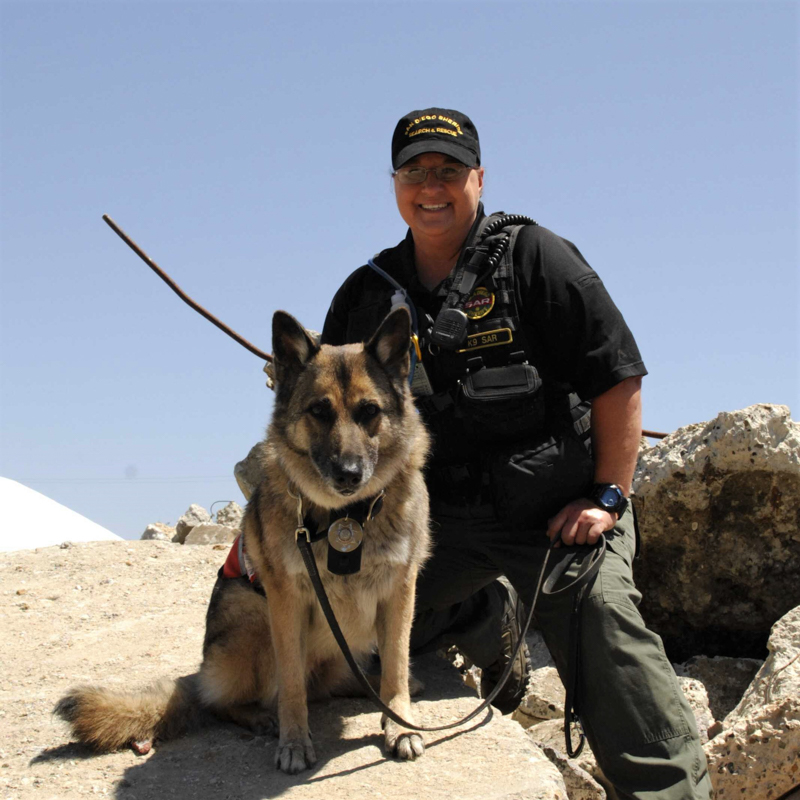
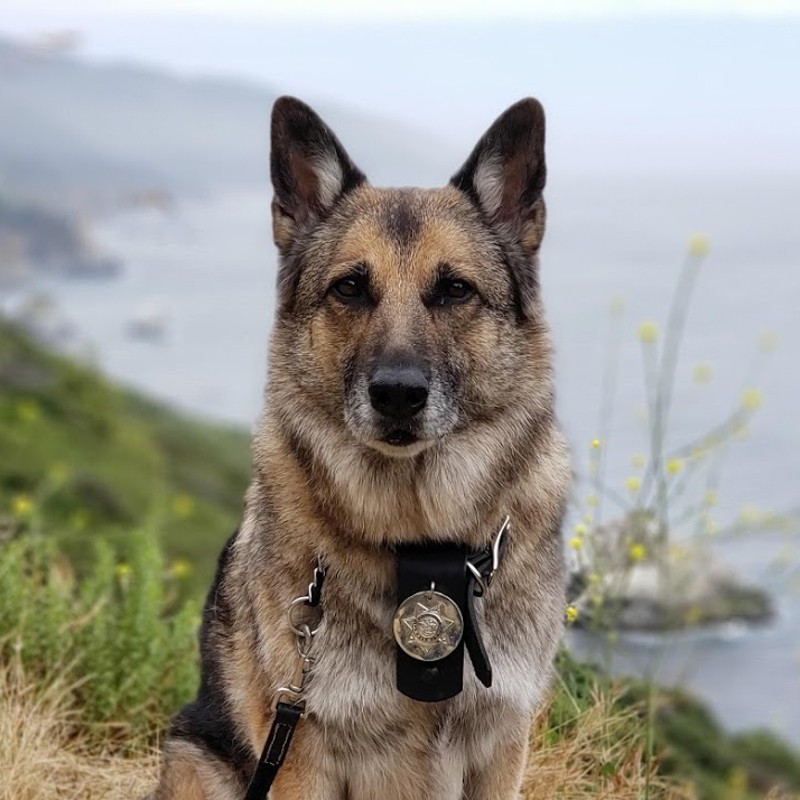
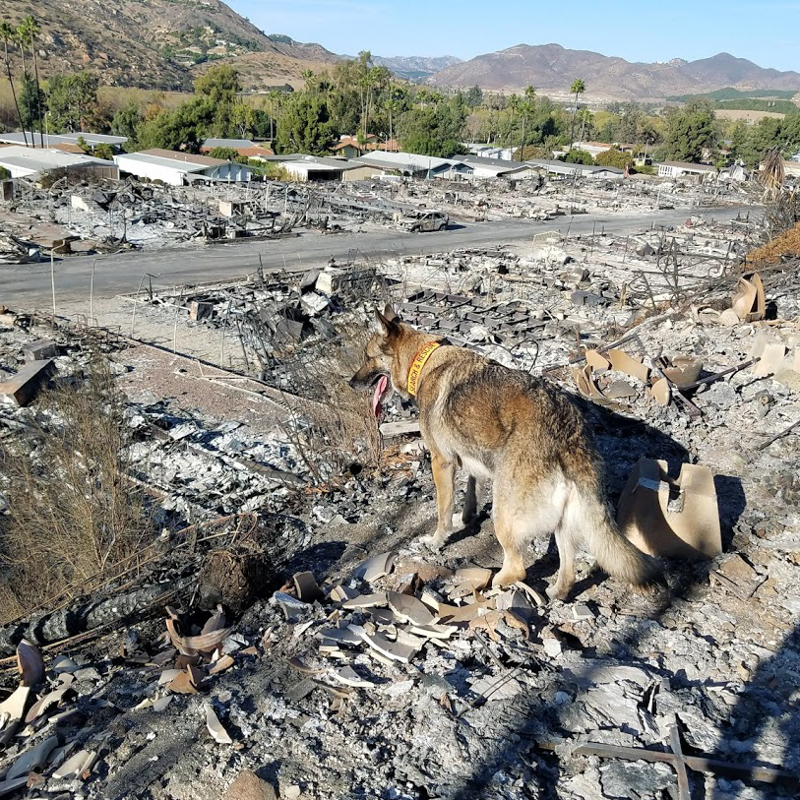
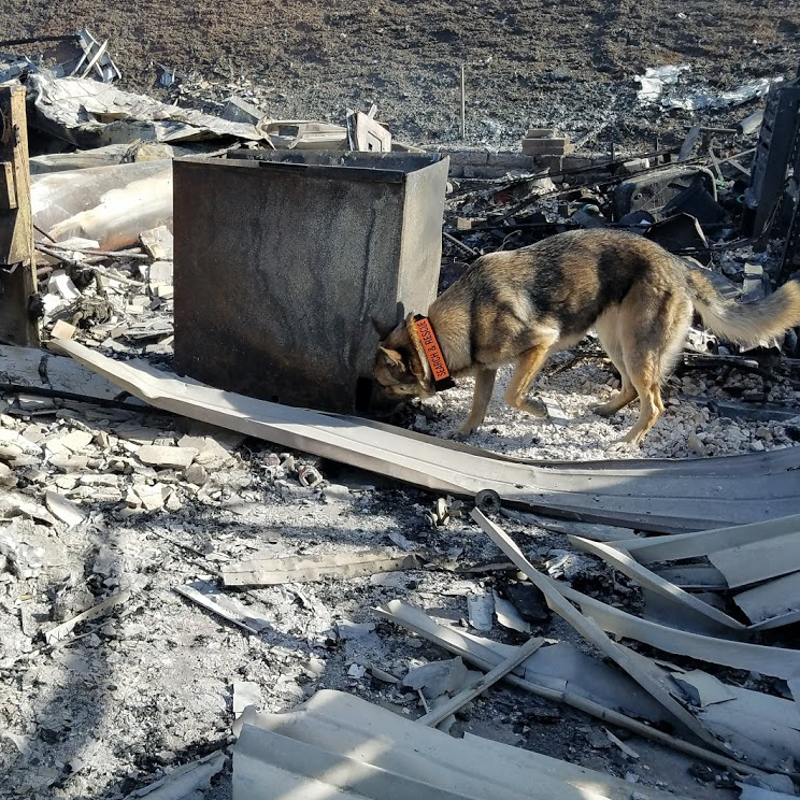
How did you decide to go into Humane Law Enforcement after years of Search and Rescue and emergency medical work?
It was the best of both worlds from my time in the ER and search and rescue. I had several injuries from the emergency room when I was attacked by the patients, and the last and worst of them left me needing 5 jaw surgeries. Another patient broke both my arms, and I decided I was done. I went back to school (while still working in the ER) to get a degree in forensics, to enhance my skills in search and rescue with the sheriff's department, and could apply what I learned going on missing person and homicide cases. After I gratuated, I was hired with the Escondido Police Department's Cold Case Homicide Unit. After several months spent investigating my first case, I helped solve a 14-year-old homicide case with my cadaver-sniffing dog. I later worked in the Forensics Speciality Unit for the police department, while still in the emergency room. (I know it sounds like I've had a lot of jobs, but I did a lot of these at the same time.) During this time, there was an incident where a bird got stuck in the atrium of the hospital I was working at, and an officer from San Diego Humane Society responded. I helped her catch the bird and asked her what she did in her job. My charge nurse at the time knew I was looking for an out, and said this was the perfect job for me — taking my experience in medicine and law enforcement, and working with animals. I went home that night and submitted my application, and three months later ended up getting hired.
How have you used all of your prior experiences to shape your work as a Humane Officer?
This was right up my alley and a perfect fit for me. I know it's stressful at times, but I really enjoy doing this and working the cases. I have a special part of me that really wants to follow through with cruelty cases, so I can apply all of my training that I've learned in forensics and bust the bad guys for hurting animals. I've been quite successful in a couple of the cases when it came to using forensics to solve these crimes. We don't always have videos or clear-cut confessions, so it ultimately comes down to interview skills, DNA or blood evidence at crime scenes. It's been pretty incredible to be able to solve cases based on just forensic evidence.
Our Captain is working to train more officers in evidence collection and forensics, and we're working with the county crime lab because we don't have our own. They're capable of doing so much that can help us with our cases. Our resources are limited, and other organizations are happy to help us because they're very passionate about animals as well. Since I've been in the field for a long time, I've been able to build relationships with other agencies who are always willing to help out.
Have there been any memorable moments you recall since joining Humane Law Enforcement?
During a case where we rescued 84 birds, I found a little baby bird in a bookcase. There had been 84 birds in a one bedroom apartment and we cleared out all the birds, but kept hearing peeping inside the apartment. We searched for another 15 minutes and found this little, naked maybe five-day-old bird inside a book that had been chewed out and made into a nest. This little bird was hand-raised and one of our veterinarians at the Escondido Campus, who ended up adopting him and named him Bookshelf. He had been naked and scared (but still kind of cute), and has turned into quite a nice little bird since he was found 3 years ago.
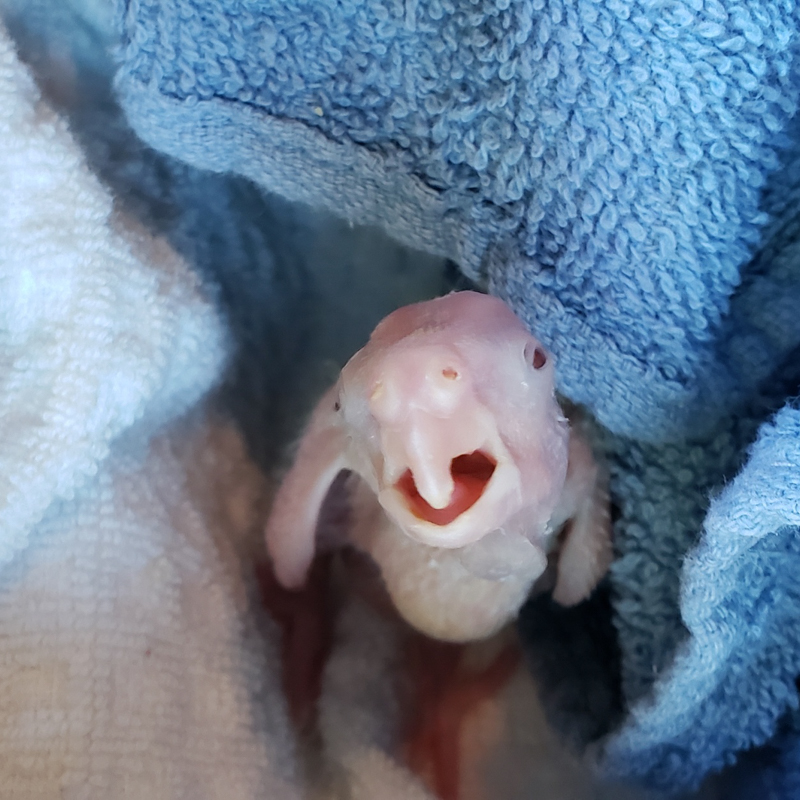
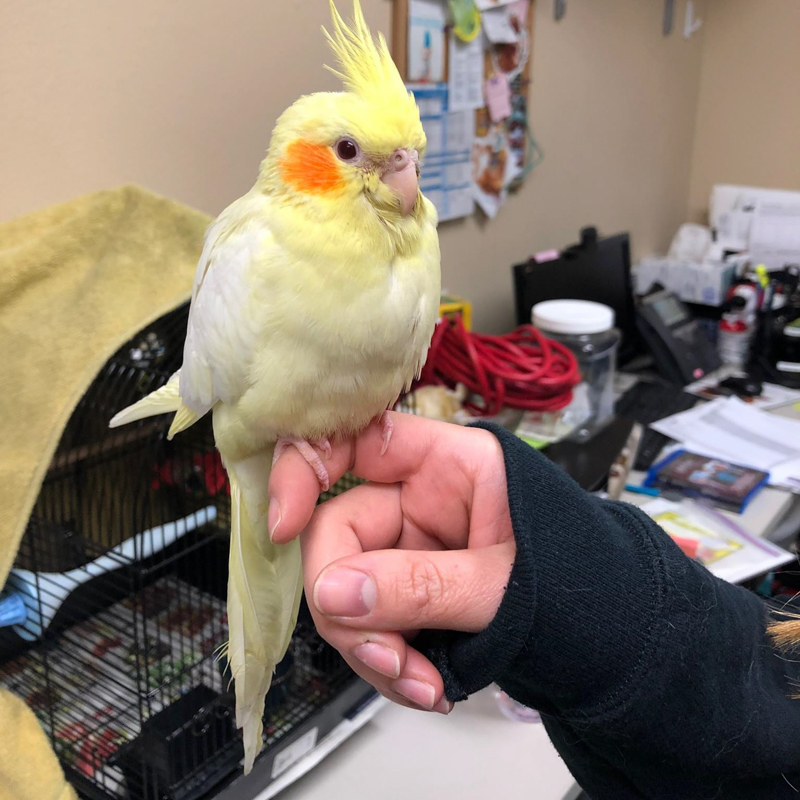
Your work can be incredibly difficult, both physically and emotionally. What keeps you motivated each day?
It was a long path, but I know this is where I was supposed to be. A lot of the rewarding part of this job has to do with my coworkers, their passion towards the job and their willingness to go the extra mile to help our animals. It's amazingly rewarding and stressful at times, but I have the same goals as everyone there and I've built really strong friendships. We have a lot in common, and that builds a family relationship so to speak.
I've handled quite a few cruelty cases, and I always like working with the San Diego Humane Society medical team, because they are helpful and their skills are so impressive. They know what to look out for through their training and have helped us get convictions. My background is medical, and I love working with the veterinary team. I have a soft spot in my heart for everyone working in the medical field — on either the human or animal side — because it's a pretty stressful job and it's amazing what they can do. We have a great camaraderie between Humane Law Enforcement and the Medical team at the Escondido Campus. I also enjoy working with wildlife. It's a great change of pace handling rattlesnakes or picking up an injured bird.
Is there a piece of Humane Law Enforcement that you wish more people knew about?
I am passionate about the animals, but I'm also passionate about making sure that we're not just helping animals, but the people who have them as well. I want it to be known that we're not here to take everyone's animals away, and there are a lot of cases that we work to help people. In hoarding cases, such as the 84 birds case that Bookshelf came from, we're a resource to help someone get out of a situation that they can't handle. We help the animals, but also call in other agencies to make sure humans can get the help they need. We're here to be a resource for the people who love these animals.
I recently was called to pick up a Belgian Malinois who got free from his owner and was hit by a car. His limb needed to be amputated, and his owner, who was homeless, didn't have the money to take care of him. It is clear that this dog and his owner had an intense bond, so I talked to the doctors at San Diego Humane Society and we were able to perform the surgery and get the dog back with their owner. I've continued to do follow ups with them. This dog is so loyal to his owner, and his owner is taking great care of him, which others who know them can also attest to. She was able to keep her dog, which was the one saving grace for her life. She's so grateful for this opportunity and is going to try to straighten her life out.
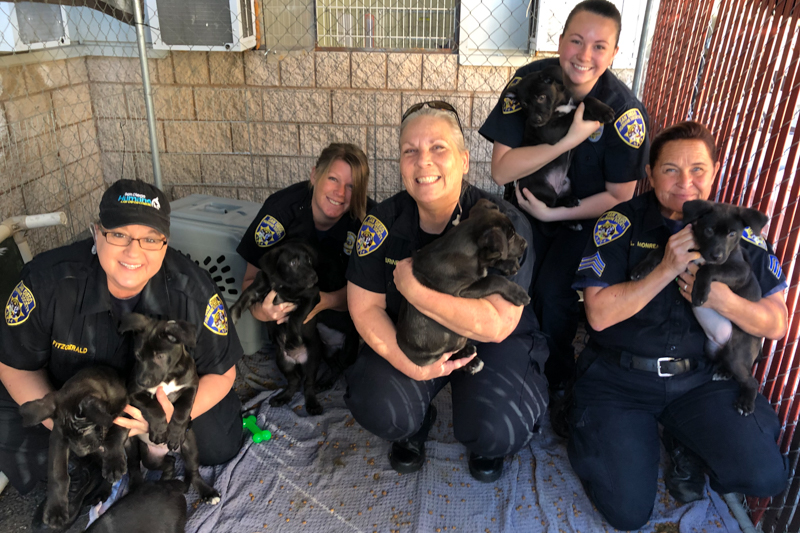
Do you have special pets at home today?
I also have another German shepherd, Holle, who I rescued on my first on-call night with Humane Law Enforcement. When I picked this amazing creature up off the street, she was emaciated, had been shot with BB guns and had bad teeth and skin. She wasn't doing well in the shelter, and they knew I was a shepherd person, so they asked if I wanted to foster her. I nursed her back to health for five months, and she put on enough weight to get spayed and have dental work done. I became an Adoption Ambassador to help her find a home, but she ran away from her new home three times in the first 24 hours. She came back to the shelter and I knew I had to adopt her, because not once in the five months that I fostered her did she ever leave my side. She picked me and I've had her ever since.
I have four animals total — my two German shepherds (Everest and Holle), Wynnston (a long-haired cat who I adopted from the Escondido Campus) and Buttons. I fostered Buttons, a kitten who came to San Diego Humane Society with a broken jaw, after his surgery. To stabilize his jaw, the doctors used buttons, and that's how he got his name. I offered to help foster because of my medical training background, and I don't mind taking the broken animals. I was fostering another kitten at the same time, but Buttons turned into a foster fail because he really got along with all of my animals. He was rough and tumble, even though he was supposed to be gentle. He always wanted to be with the dogs, and now he goes in and out, following them everywhere. He's just a cute little fireball, and he kind of adopted us. He's a very affectionate little kitten with a special personality. I just have my four, but I foster as needed if an injured animal comes along.
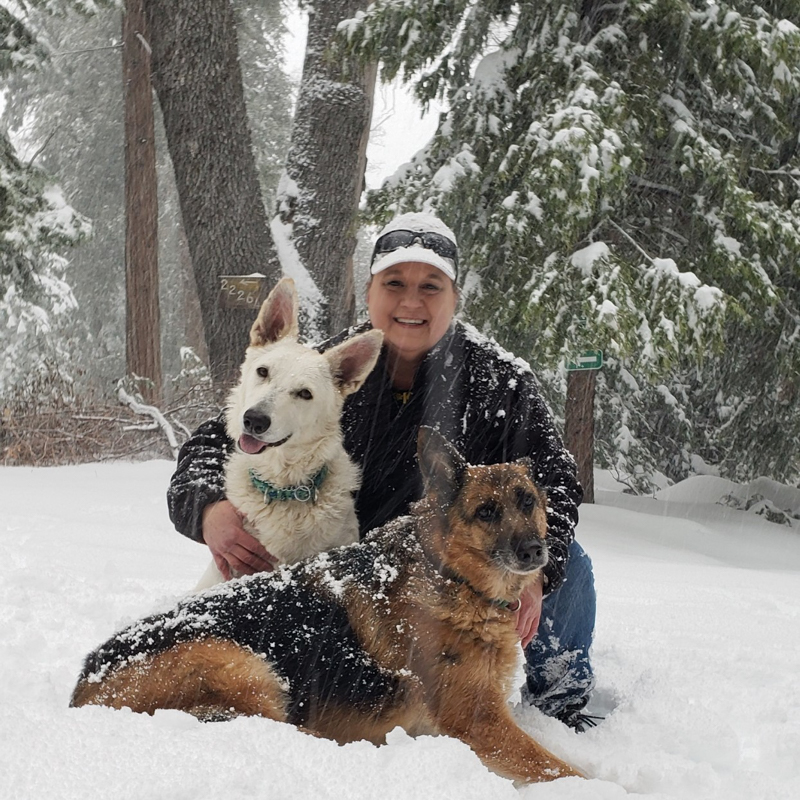
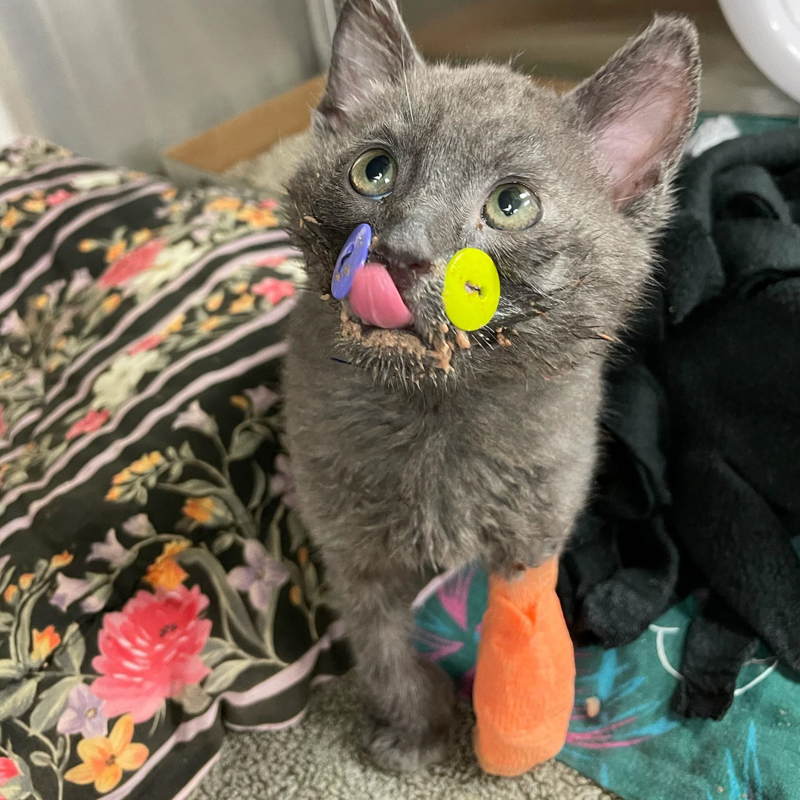
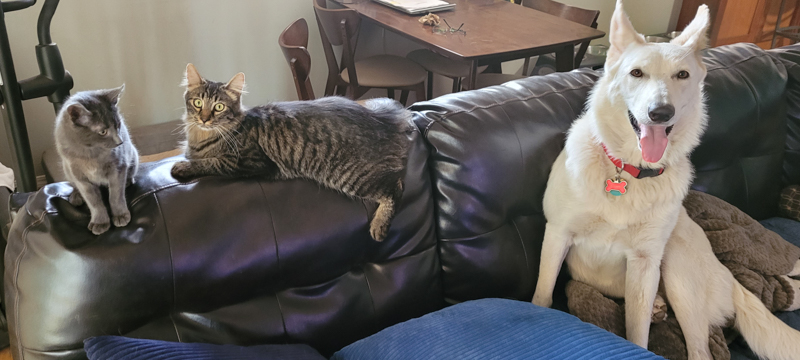
What does it mean to be able to come home to your animals after a long day?
I'm always greeted by my animals when I get home. Wynnston will jump up on my shoulders and the dogs are always waiting for me at the door. They know what my schedule is, and, if I get off on time, they'll be there waiting. At the end of a really rough day, it's a relief to have a dog who's happy to see you and can't get any closer, and just wants to lick your face. All four of my animals are really happy to see me. I know they probably just want me to feed them, but ultimately they're always happy. All the bad stuff kind of just washes away. It's always great to know you have those animals caring about you and waiting for you.
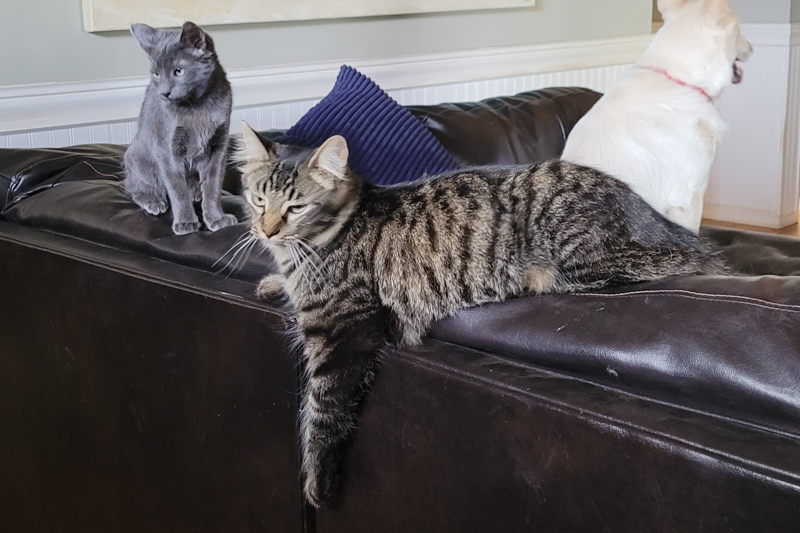
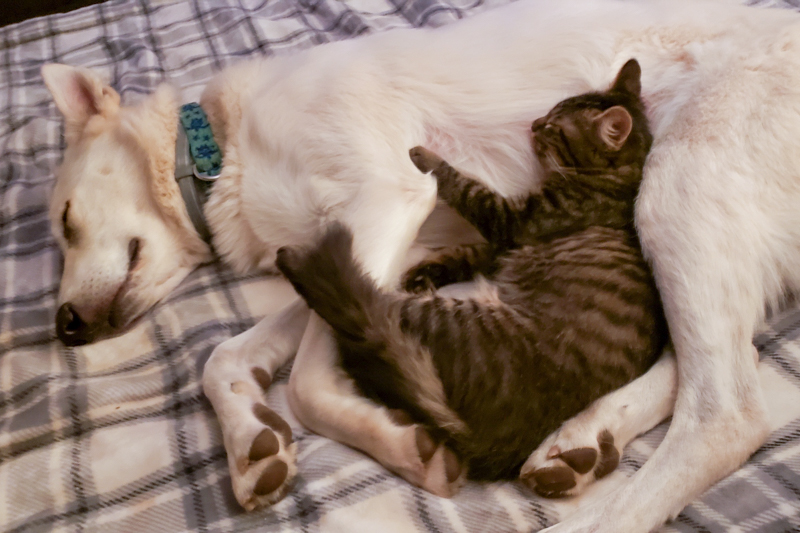
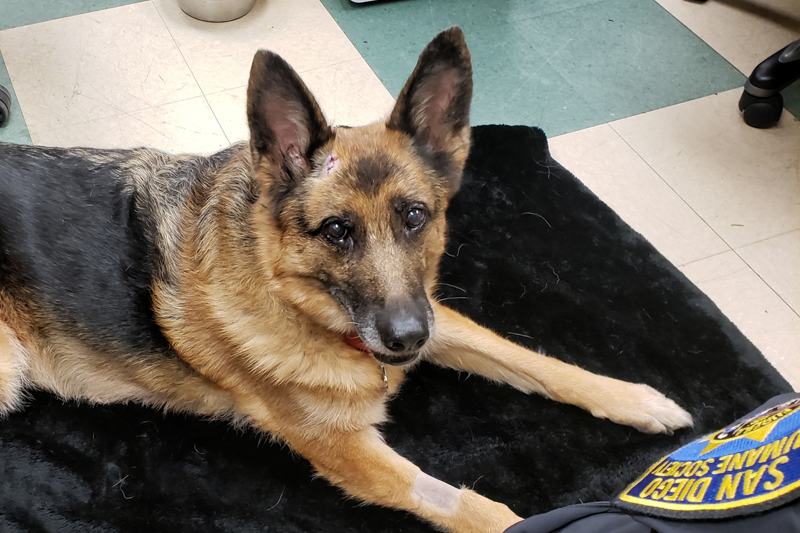
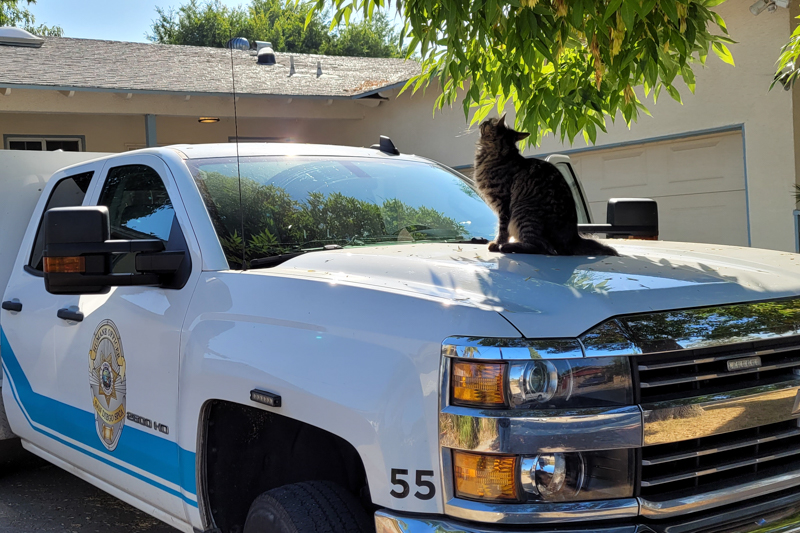
We're so grateful to Officer Fitzgerald and the dedicated members of our Humane Law Enforcement team for the compassionate work they do 24 hours a day, 7 days a week. In honor of National Prevention of Cruelty to Animals Month, read more about their impact at sdhumane.org/preventingcruelty.
Published: April 18, 2022



